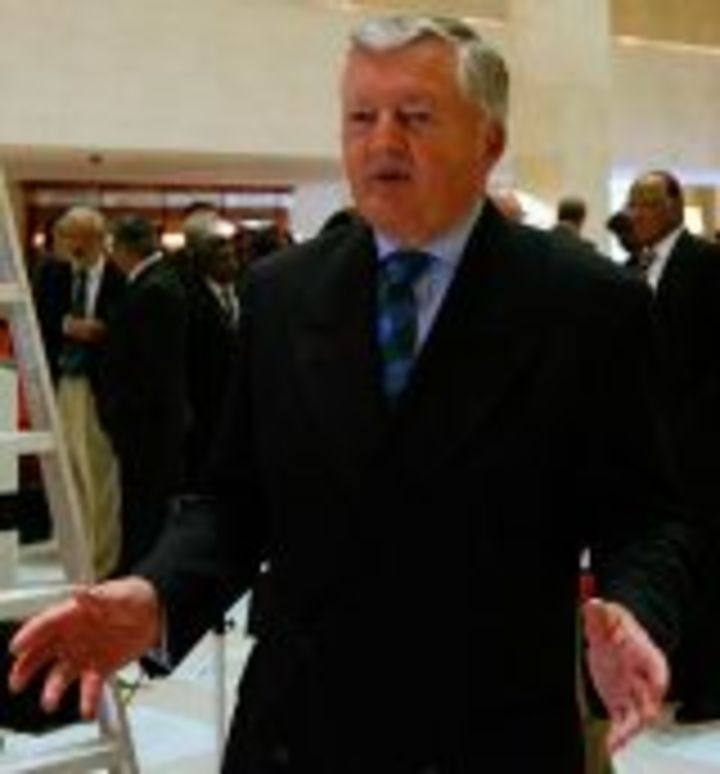'The ICC should just write out a cheque for $10m to Mugabe'
The ICC elite might be congratulating themselves on a satisfactory compromise, but the initial reaction from the media indicates they are less impressed.

The ICC elite might be congratulating themselves on a satisfactory compromise, but the initial reaction from the media indicates they are less impressed.
In The Age Alex Brown writes that “the outcome might amount to a triumph for politicking and face saving, but it will do little to improve the standard or appeal of international cricket.”
Cogniscant of the British government's threat to ban Zimbabwe from the tournament, the ICC's executive committee moved to avoid a potentially fractious fall-out by leaning on the ZC to withdraw its team. The ZC's reward was to retain its current level of funding and full voting power, which will almost certainly ensure India's virtual hegemony on the council for years to come.
In the Australian, Malcolm Conn described the ICC’s solution as an “embarrassing backdown”.
“The ICC continues to pour millions of dollars into Zimbabwe. There are serious questions about where the money ends up, with cricket at all levels in Zimbabwe destroyed and the administration closely aligned to dictator Robert Mugabe. One frustrated member of the cricket establishment yesterday told The Australian: "The ICC should just write out a cheque for $10m to Mugabe.”
Anand Vasu, writing in the Hindustan Times, is critical of the decision.
Worst of all, those governing the game in Zimbabwe have been given the license to eat their cake and have it too. Already they were freed of the effort required to produce a Test team, hardly bother with their ODI side, and now they won't be playing the World Twenty20.
In The Times, Richard Hobson says the outcome is a triumph for ECB chairman Giles Clarke, adding:
The supine ICC should be ashamed at continuing to give money to an organisation whose links with the Robert Mugabe regime were detailed forensically by Norman Arendse, the Cricket South Africa president. It is a disgrace that the ICC constitution does not allow Zimbabwe to be stood down on political grounds when cricket and politics are entwined in the country.
"Many suspected that Giles Clarke's negotiating style would be too brusque for ICC tastes. They reflected upon a history of disastrous ECB negotiators and feared the worst. He might yet prove too volatile. But in Dubai, as England won the right not to host Zimbabwe in next summer's World Twenty20, he enjoyed a striking personal triumph," writes David Hopps in the Guardian.
Also in The Times, Dileep Premachandran looks at the reasons behind India's support for Zimbabwe.
It came down to Zimbabwe being the fifth vote. Financial considerations mean that the Asian bloc will invariably vote as one, but with South Africa now having broken off cricketing ties with Zimbabwe, it was imperative that India retain its power base at the ICC. And if that means supporting a board whose links to Robert Mugabe's Zanu-PF party are not even in doubt, then so be it.
And Stephen Brinkley writes in the Independent how Nelson Madela mentioning "the tragic failure of leadership in our neighbouring Zimbabwe" last week influenced the ICC meeting.
Martin Williamson is executive editor of ESPNcricinfo and managing editor of ESPN Digital Media in Europe, the Middle East and Africa
Read in App
Elevate your reading experience on ESPNcricinfo App.